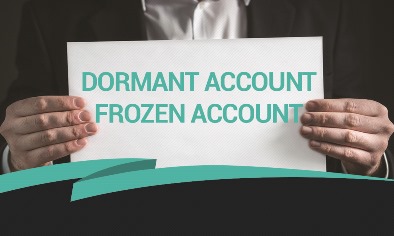What is frozen account? A frozen account is a bank account that has put a hold on your funds, meaning you can’t access the money in it. You can still make deposits, but all withdrawals are generally off-limits or post no debts until it’s unfrozen.
What is frozen account?
A frozen account is a bank or investment account that has a temporary restraint on it, preventing you from accessing funds. Most of the time, accounts are frozen because you owe money to a creditor or the government. In some cases, it may happen if the bank detects suspicious activity on your account.
How Does a Frozen Account Work?
You can still add money to a frozen account, but you can’t take money out of it until you meet all the requirements to unfreeze it.
Many times, a frozen account happens because you’re behind on payments to a lender, so they’ve filed a lawsuit and won a judgment to freeze your account. The lender then delivers this judgment to your bank or investment firm, and they are legally required to freeze your account immediately. This process is also known as a bank levy.
What are the Reasons of Frozen Account
A financial institution can freeze your account for a variety of reasons. Below are seven, but an account has been frozen for another reason.
- You owe money to creditors: This means they’ve received a judgment that allows them to levy (or seize) your bank account.
- You owe money to the government: The government has seized your account (without a judgment) to pay for federal taxes, child or spousal support, federal student loans, or other government debts.
- Your debit card or checkbook has been lost: The bank has temporarily frozen your account (with your permission) until you can find it.
- The bank has detected potential fraud or illegal activity on your account: This most likely happened from writing bad checks or making a suspicious deposit or transfer. The bank has temporarily frozen your account to investigate the situation.
- You were convicted of a crime: The government has ordered your accounts be frozen to cover damages to your victims.
- You own an investment account in which you’ve been “freeriding”: Freeriding means you were buying and selling securities before paying for them. In this case, the institution has put a 90-day freeze on your account to comply with Regulation
- You died and were the sole account owner: Your account has been temporarily frozen until a beneficiary or executor of the estate comes forward.
How To Unfreeze a Account
Frozen accounts typically aren’t permanent. They can be unfrozen when you complete the necessary actions by the given deadline.
For example, if your account is frozen because of a creditor, lender, or government agency, you can unfreeze it by paying your debts. Required document supply when needed for different reasons, If there was suspicious activity on your account, you can unfreeze it by clearing up the activity with your bank. However, if you have been participating in fraudulent activity and your bank has proof, they can close your frozen account without warning or notice.
If you’re not sure why your account is frozen, give your institution a call and ask. If you can’t meet the requirements to unfreeze it, consider getting legal help from a local attorney.
See more
Types of business messages in business communication?
Offshore Banking fundamentals and benefits of offshore banking


